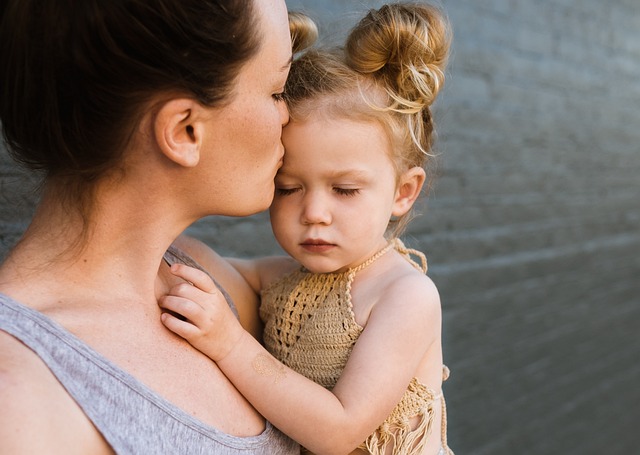Oregon grandparent custody laws allow biological or significantly involved grandparents to seek legal custody or visitation rights. The best interests of the child are paramount, with factors like living situation and parental abilities considered. Grandparents must demonstrate fitness as caregivers, follow court procedures, and understand various custody arrangements (joint, sole, visitation) for effective guidance in navigating Oregon family custody laws.
Understanding Oregon Custody Laws for Grandparents
In Oregon, grandparents seeking custody face a complex legal landscape. This guide aims to provide clarity on your rights and offer valuable insights into navigating the process. We explore who qualifies as a grandparent under the law and the grounds for custody, delving into the types of custody orders available—joint, sole, or visitation—and the steps involved in filing a petition. Common scenarios, challenges, and resources are also discussed, offering much-needed support to Oregon grandparents seeking custody.
- Oregon Grandparent Custody: Overview of Legal Rights and Considerations
- – Who qualifies as a grandparent under Oregon law?
- – What are the legal grounds for seeking custody?
- Types of Custody in Oregon: Joint, Sole, and Visitation Rights
Oregon Grandparent Custody: Overview of Legal Rights and Considerations

In Oregon, grandparents have specific legal rights and considerations when it comes to custody matters. According to state laws, grandparents can seek legal custody or visitation rights if they wish to play an active role in their grandchild’s life. Understanding Oregon’s family custody laws is crucial for grandparents looking to establish or maintain a significant relationship with their grandchildren.
The state recognizes the importance of grandparental involvement and has put provisions in place to ensure these relationships are protected. Legal custody gives grandparents the right to make important decisions regarding their grandchild’s welfare, health, and education. However, it’s essential to note that the court will always prioritize the best interest of the child above all else when making custody determinations. Grandparents seeking custody or visitation should consult with an experienced family law attorney for guidance tailored to their unique situation.
– Who qualifies as a grandparent under Oregon law?

In Oregon, a grandparent’s ability to seek legal custody of their grandchildren is governed by specific laws designed to protect the best interests of the child. To qualify as a grandparent under Oregon law, one must establish a biological relationship with the child or a significant parental relationship that can be demonstrated through marriage, adoption, or court order. This means that step-grandparents and foster grandparents may also have grounds to pursue custody rights if they can prove their substantial involvement in the child’s life.
Understanding Oregon’s family custody laws is crucial for grandparents seeking legal custody. The state recognizes grandparent visitation rights and can grant temporary or permanent legal custody based on several factors, including the child’s living situation, parental abilities, and the grandparent’s capacity to provide a stable and loving home. Grandparents interested in pursuing custody should seek guidance from experienced family law attorneys to navigate these complex laws effectively.
– What are the legal grounds for seeking custody?

In Oregon, grandparents seeking custody of their grandchildren must establish a legal basis for doing so. The primary grounds for grandparent custody are typically based on the best interests of the child and the existence of a significant relationship between the grandchild and grandparent. Oregon law recognizes that grandparents can provide stable and loving homes for children, especially when parents are unable to care for them. To prove their case, grandparents need to demonstrate their fitness as caregivers, showing they can meet the child’s physical, emotional, and developmental needs.
Understanding Oregon’s family custody laws is crucial for grandparents aiming to secure legal custody rights. Grandparents may need guidance navigating the process, which involves filing a petition with the court and presenting evidence supporting their request. The court will assess various factors, including the grandchild’s current living situation, the grandparent’s ability to provide care, and any history of parental involvement or misconduct. Effective custody guidance for grandparents should encompass knowledge of these legal requirements and procedural steps to ensure a strong case presentation.
Types of Custody in Oregon: Joint, Sole, and Visitation Rights

In Oregon, when it comes to grandparent custody, understanding the different types of custody arrangements is essential for ensuring the best interests of both the child and the grandparents are met. The primary types of custody include joint custody, sole custody, and visitation rights. Joint custody refers to a situation where both grandparents have legal decision-making authority and shared physical custody of the child. This arrangement allows for equal participation in significant life decisions regarding the child’s upbringing, education, healthcare, and religion.
Sole custody, on the other hand, grants one grandparent exclusive legal and physical custody rights. Visitation rights are also crucial; they allow grandparents regular and meaningful time with their grandchild without having full custodial responsibility. These rights can be specified in a court order or agreed upon between the parents and grandparents. Understanding these options is vital for Oregon grandparent custody cases, offering guidance to ensure everyone’s rights and needs are respected.














